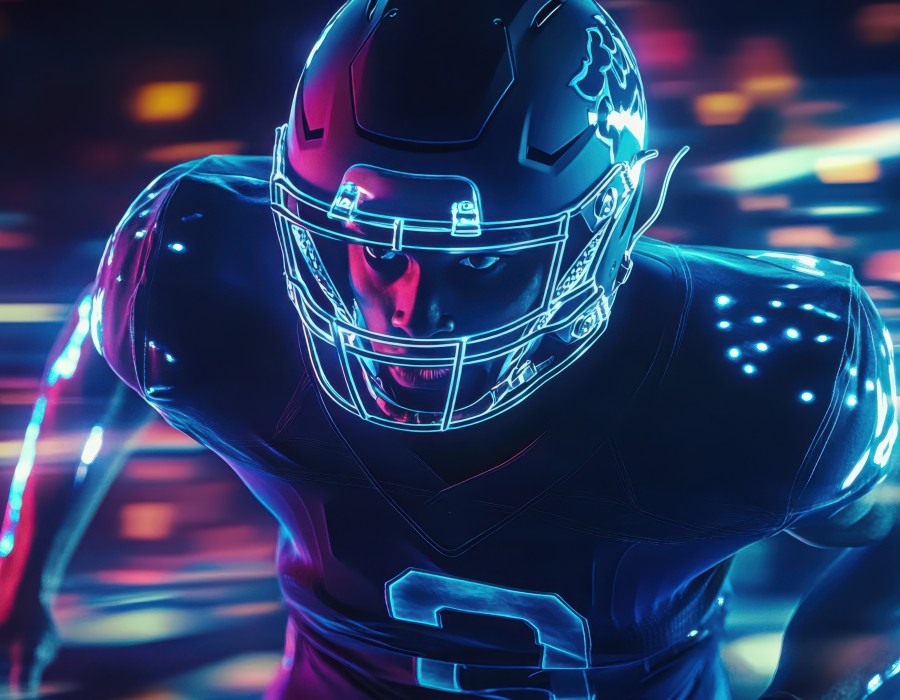The integration of non-fungible tokens (NFTs) into the digital world has made waves across industries, particularly in sports. NFTs have become a revolutionary force in transforming how fans engage with sports, providing new ways to own and trade digital assets that are unique and verifiable. The sports industry, always at the forefront of innovation, has embraced NFTs, and this has led to exciting developments in sports app development. As the digital space continues to evolve, a forward-thinking to create dynamic, engaging platforms that not only entertain fans but also provide new revenue streams.
In this article, we’ll explore the role of NFTs in sports app development, their potential benefits, and why businesses should consider incorporating this cutting-edge technology into their sports apps.
1. Understanding NFTs and Their Impact on Sports
NFTs are digital assets stored on a blockchain, ensuring they are unique and cannot be replicated. In the sports world, NFTs are used to tokenize exclusive moments, memorabilia, player cards, and even virtual experiences, allowing fans to own a piece of sports history in digital form.
The uniqueness and scarcity of NFTs make them highly valuable, creating a new market for digital collectibles. Fans can buy, sell, or trade their NFTs, much like physical collectibles, but with the added benefit of blockchain technology ensuring their authenticity and ownership rights.
For sports app developers, NFTs provide an opportunity to enhance fan engagement by offering exclusive content and experiences that can't be accessed elsewhere.
Want to Create Your Own Sports App: Hire App Developers in India
2. How NFTs are Integrated into Sports Apps
NFTs offer various ways for sports apps to engage users and create unique offerings. Here’s how NFTs are integrated into sports app development:
a. Exclusive Digital Collectibles
NFTs enable sports fans to collect digital versions of rare memorabilia such as signed jerseys, historic game moments, or player trading cards. These collectibles are often sold in limited quantities, increasing their desirability and value. A well-designed sports app can allow fans to purchase and showcase these NFTs in virtual galleries, fostering a sense of community among users.
b. Tokenized Game Highlights
Imagine being able to own the digital rights to your favorite player’s game-winning goal or a historic sports moment. NFTs allow fans to purchase and trade these highlights, giving them digital ownership of unique sports moments.
c. Virtual Fan Experiences
Sports fans crave interaction with their favorite teams and players. With NFTs, sports apps can offer tokenized virtual experiences, such as exclusive Q&A sessions with athletes, virtual meet-and-greets, or behind-the-scenes content. These experiences can be sold as NFTs, giving users access to one-of-a-kind content that deepens their connection to the sport and the players.
3. Monetization Opportunities through NFTs in Sports Apps
NFTs open up a range of monetization opportunities for sports apps beyond traditional models like advertising and in-app purchases. Here’s how integrating NFTs can boost revenue:
a. Primary Sales of NFTs
Sports apps can generate revenue by selling exclusive NFTs to users. These digital assets can range from player cards to memorable game moments, and their limited availability can drive demand and create a thriving secondary market.
b. Transaction Fees
Whenever users trade NFTs within the app’s marketplace, the platform can take a percentage of the transaction as a fee. This creates a continuous stream of revenue as users buy, sell, and trade their NFTs.
c. Tokenized Access to Special Content
NFTs can also be used as tokens for gated content. For example, fans might need to purchase an NFT to gain access to exclusive live streams, virtual events, or premium behind-the-scenes footage. By doing so, sports apps can offer more personalized and valuable experiences to their most engaged users.
Collaborating with an app development company can help businesses navigate the complexities of integrating NFTs into their platforms while creating a seamless experience for users.
4. Enhancing Fan Engagement with NFTs
NFTs are not just about owning digital assets; they also provide a way to enhance fan engagement through interactive features and gamification.
a. Fantasy Sports Integration
Fantasy sports apps are one of the most popular ways fans engage with sports. By incorporating NFTs into fantasy sports apps, businesses can allow users to buy and trade player NFTs, which can act as unique avatars or provide special boosts in the fantasy game. For example, owning a rare player NFT could give users a competitive edge in the game.
b. Loyalty and Reward Programs
Sports apps can use NFTs to create loyalty programs that reward users for their engagement. Fans could earn NFTs as rewards for attending live events, participating in in-app challenges, or reaching milestones in the app. These NFTs could be traded or redeemed for special prizes, making fan engagement more exciting and rewarding.
When developing these features, it’s important to hire developers in India who are skilled in both blockchain technology and sports app development. They can help create engaging platforms that seamlessly integrate NFTs into fan experiences.
5. Blockchain Technology and Its Role in NFT Development
At the core of NFTs is blockchain technology, which ensures the uniqueness, security, and traceability of each digital asset. For sports apps that incorporate NFTs, blockchain provides the foundation for creating a transparent and secure marketplace.
a. Security and Transparency
Blockchain technology ensures that every NFT transaction is recorded and traceable, providing users with confidence in the authenticity and ownership of their assets. This is crucial for sports apps that sell valuable digital collectibles, as it ensures fans are getting what they pay for.
b. Smart Contracts
Smart contracts, which are self-executing contracts with the terms of the agreement directly written into the code, can be used to automate NFT transactions. This allows for instant transactions, removing the need for intermediaries and creating a seamless user experience.
By partnering with a blockchain development company, businesses can ensure that their sports app is built on a secure and scalable blockchain infrastructure, capable of handling the growing demand for NFTs in the sports industry.
6. Why Choose an Experienced Sports App Development Company
The integration of NFTs into sports apps requires a deep understanding of both sports and blockchain technology. Choosing an experienced sports app development company is essential to ensure that your app not only meets the needs of sports fans but also leverages the full potential of NFTs.
a. Expertise in Blockchain Technology
A seasoned sports app developer will have experience working with blockchain technology, ensuring that NFTs are securely integrated into the app. This includes managing transactions, securing digital assets, and providing users with a transparent marketplace for buying and selling NFTs.
b. User-Centric Design
Incorporating NFTs into a sports app requires a user-friendly interface that makes it easy for fans to navigate the app, purchase NFTs, and engage with exclusive content. A professional sports app development team will focus on creating an intuitive and engaging experience for users.
By deciding to hire developers in India, businesses can access a pool of talented professionals who have experience developing cutting-edge sports apps and integrating blockchain technology at a competitive cost.
Conclusion
NFTs are reshaping the sports industry, offering new ways for fans to engage with their favorite teams and athletes through digital collectibles, game highlights, and virtual experiences. By integrating NFTs into sports apps, businesses can enhance fan engagement, create new revenue streams, and position themselves at the forefront of innovation in the sports industry.






Comments